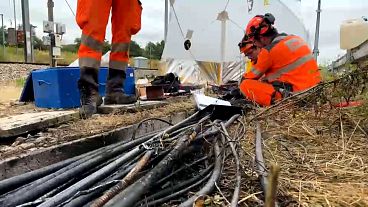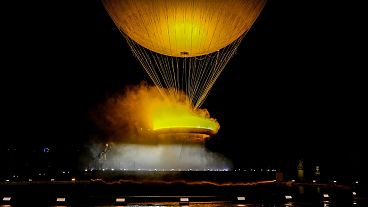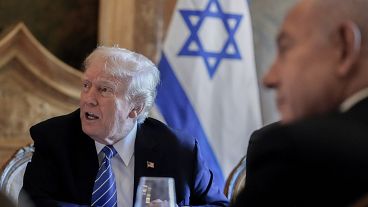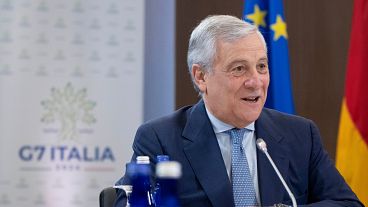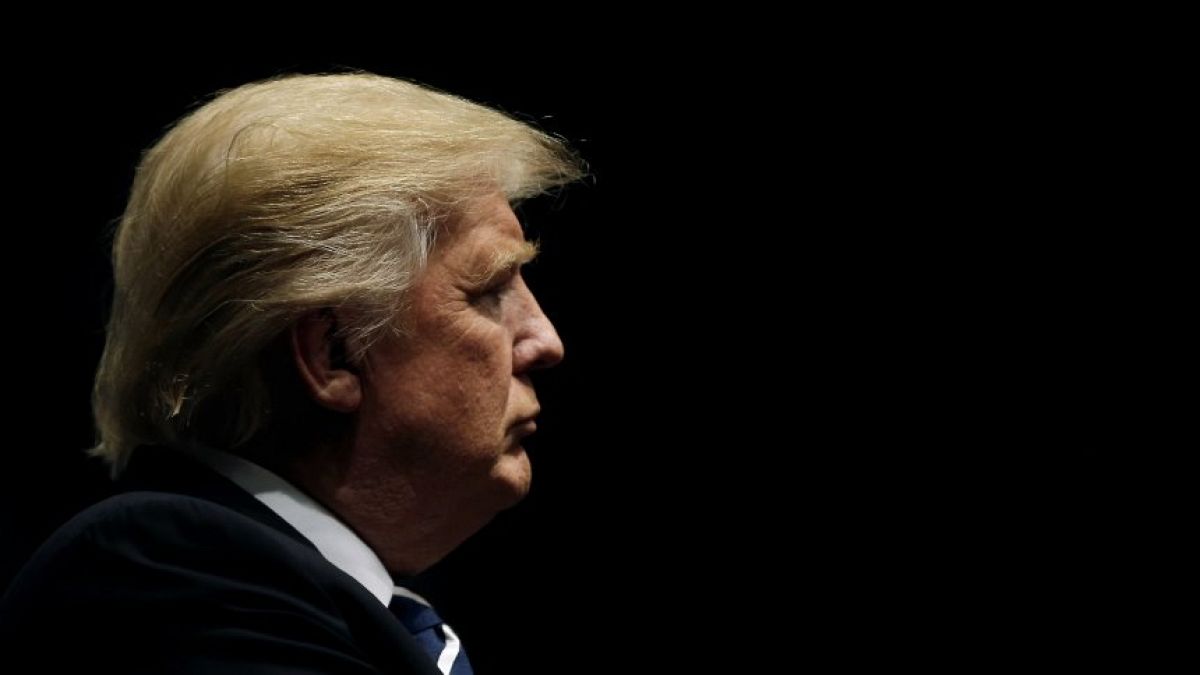James Comey’s testimony is expected to shed new light on the murky Trump-Russia connection
Washington is getting ready for one of its biggest days in decades: On Thursday, fired FBI Director James Comey will testify before the Senate Intelligence Committee and tell his side of the story of just what transpired between him and President Donald Trump.
Comey’s testimony is expected to shed new light on the murky Trump-Russia connection and on whether Trump has tried to influence or even stop the investigation into his fired National Security Advisor Michel Flynn.
Did Trump engage in an effort to cover-up shady dealings with the Russians during last year’s election campaign? Did Trump lie when he called the reporting on Comey’s conversations with him wrong?
Old Washington hands are feeling the specter of Watergate engulfing the city. The Russia connection might consume Trump’s presidency the way Watergate consumed Richard Nixon’s.
Yet, Carl Bernstein, the legendary reporter who, together with his Washington Post colleague Bob Woodward, revealed the Watergate scandal, said “Trump is not nearly as effective at presiding over a cover-up as Richard Nixon was.”
Meaning: Trump and the people around him may go down faster than Nixon.
Trump’s mysterious ties to Russia, his refusal to condemn the Kremlin as evidence of its election interference became clear, have raised questions whose validity Trump stubbornly denies.
He also surrounded himself with aides and advisers with curious Russian ties, whose roles in the imbroglio are still being investigated. These men and their background are crucial for the understanding of the Trump-Russia connection.
Even more, they hold the keys of what has the potential of being the biggest scandal since Watergate.
Here is a short list of “All the President’s men” (the title of Bernstein’s & Woodward’s Watergate bestseller):
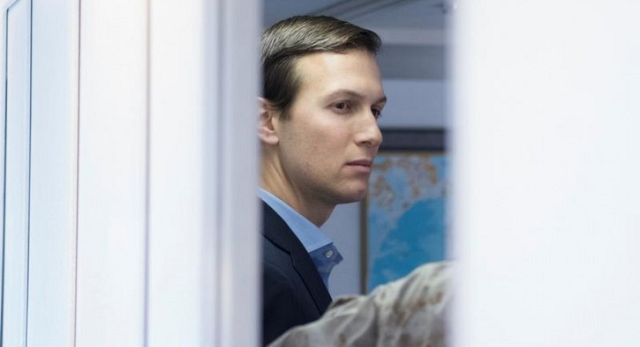
Jared Kushner
The president’s son-in-law remains one of the president’s most trusted advisors, although recent news reports suggested that Trump has cooled a bit on Kushner. Maybe it is because of the fact that Kushner recently appeared as a central figure in the Trump-Russia imbroglio
For starters, Kushner reportedly failed to disclose “dozens of contacts with foreign leaders or officials in recent months” on his application for security clearance, including meetings with Russian Ambassador Sergey Kislyak and Sergey Gorkov, the head of Vnesheconombank, a Russian state-owned bank.
During one of those meetings, Kushner reportedly proposed “setting up a secret and secure communications channel between Trump’s transition team and the Kremlin, using Russian diplomatic facilities.”
According to the Washington Post, Kushner suggested the use of Russian diplomatic facilities as a way to shield pre-inauguration discussions with Kislyak from monitoring. Kislyak allegedly then relayed the suggestion to his superiors in Moscow.
Kislyak was apparently surprised by the suggestion of permitting an American to use Russian communications equipment at its consulate or embassy as the proposal could have had innate security risks both for the Trump team and for Moscow.
Russian officials occasionally leak false information into communication streams it suspects are monitored as a way of sowing misinformation and confusion among US analysts.
But it is unclear what Kislyak would have gained by falsely reporting such an encounter at a time when the Kremlin was envisioning improved diplomatic relations under the incoming Trump administration.
Kushner’s secret contacts with Russian officials is one thing, his role in the firing of FBI Director James Comey in May is another. Kushner reportedly strongly advocated Trump’s spectacular move, raising further questions about his influence in the White House.
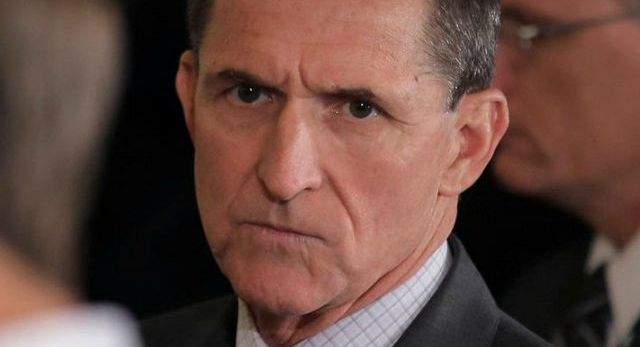
Michael Flynn
The former Defense Intelligence Agency chief is another key personality of the Trump-Russia saga. Flynn was asked in February 2016 to serve as an advisor to the Trump campaign – which he did quite aggressively. He memorably led the crowd at the Republican Convention in anti-Hillary Clinton chants of “lock her up.”
During the election campaign, Flynn used Twitter to post links to negative stories about Clinton, including fake news like the notorious Pizzagate conspiracy theory. He also referred to Clinton as the “enemy camp” who should be in jail.
Now Flynn—ousted after 24 days on his job as Trump’s national security advisor—is facing legal jeopardy of his own.
According to members of Oversight Committee of the House of Representatives, the retired lieutenant general may have broken the law by failing to disclose payments from Russian and Turkish interests, including for a Moscow speech he gave at an event celebrating RT, the Kremlin-¬backed English-language broadcaster, where he was seated next to Vladimir Putin.
Barack Obama personally warned Trump about hiring Flynn, whom Obama had fired from his DIA post. Flynn was forced out after clashing with superiors over his allegedly chaotic management style and his loose relationship with facts, leading his subordinates to refer to Flynn’s repeated dubious assertions as “Flynn facts”.
In January, acting Attorney General Sally Yates urgently told the Trump administration that Flynn had lied about his contacts with Ambassador Kislyak and could be vulnerable to Russian blackmail. She added that Flynn’s “underlying conduct”, which she could not describe due to classification, “was problematic in and of itself,” saying “it was a whole lot more than one White House official lying to another.”
When that news emerged in the Post three weeks later, Trump fired Flynn and blamed the media, calling Flynn a “wonderful man” who had been treated “very unfairly.”
The next day, Trump met with FBI Director Comey in the Oval Office and told him “I hope you can see your way clear to letting this go, to letting Flynn go” adding “he’s a good guy.”
Flynn has offered to testify if offered immunity. In May, the Senate Intelligence Committee subpoenaed records from him and his business associates.
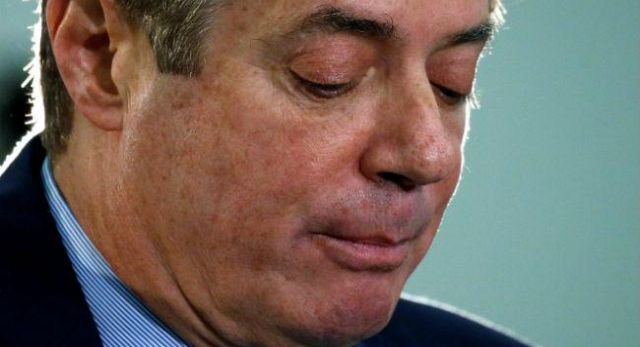
Paul Manafort
“A lobbyist out of central casting” (Mother Jones magazine), Manafort often lobbied on behalf of controversial foreign leaders such as Ukrainian president Viktor Yanukovych, dictators Ferdinand Marcos and Mobutu Sese Seko, and guerrilla leader Jonas Savimbi.
(In hacked text messages made public in February, Manafort’s daughter Andrea allegedly said her father had “no moral or legal compass” and described her family’s wealth as “blood money.”)
Brought on to the Trump campaign at the urging of his former business partner Roger Stone, Manafort helped to guide it through the Republican convention.
Manafort was ousted in August, as details emerged about his work for deposed Ukrainian President Viktor Yanukovych, a Putin ally, which allegedly involved $12.7 million in secret cash payments earmarked for Manafort.
Scrutiny of Manafort, who is reportedly under investigation by the FBI and the Treasury Department, has expanded to include his business dealings with Oleg Deripaska, the Russian aluminum magnate and Putin ally who was denied a visa to the United States because of alleged ties to organized crime.
Investigations were said to be based on intercepted Russian communications as well as financial transactions.
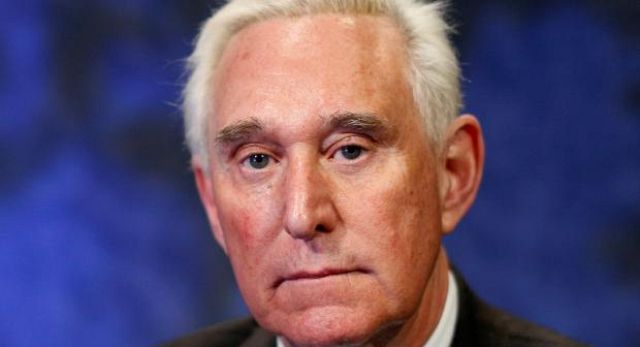
Roger Stone
The 64-year-old has been referred to in media variously as a “political dirty trickster”, a “renowned infighter”, a “seasoned practitioner of hard-edged politics” and a “veteran Republican strategist”. Over the course of his political career, Stone has been widely regarded for promoting a number of falsehoods and conspiracy theories.
He has advised Trump for decades, lobbying on behalf of Trump’s casino interests and serving as campaign manager of the real estate mogul’s short-lived presidential campaign in 2000.
During the 2016 campaign, Stone seemed to possess uncanny knowledge of what WikiLeaks had in store for Hillary Clinton. On October 1, he tweeted, “Wednesday @HillaryClinton is done. #Wikileaks.”
Less than a week later, WikiLeaks began publishing the emails of Clinton campaign chair John Podesta. Stone claimed he was in touch with WikiLeaks’ founder, Julian Assange, and that he exchanged direct messages with Guccifer 2.0—the handle for the alleged Russian hacker(s) who posted the stolen DNC emails.
During the congressional investigations of Russia’s role in the 2016 election, Stone’s role in Trump’s campaign and potential contacts with Russia have come under scrutiny.
The Senate Intelligence Committee has asked Stone to preserve all documents related to any Russian contacts. The Committee Vice Chair, Senator Mark Warner, called on Stone to testify before the committee, saying he “hit the trifecta” of shady dealings with Russia. Stone denied any wrongdoing
Yet, Stone said he is willing to testify. But anything he says should be taken with a grain of salt—his mantra, after all, is: “Admit nothing, deny everything, launch counterattack.”
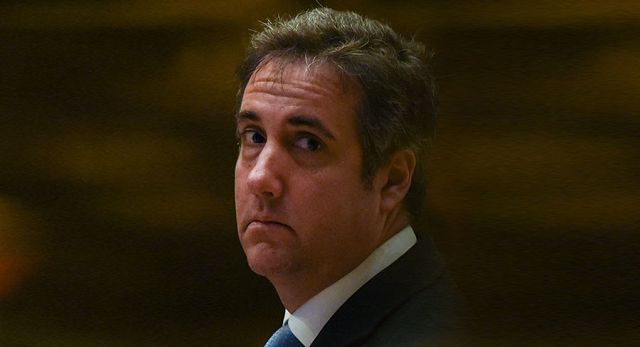
Michael Cohen
In the dossier produced by the ex-British spy Steele, Trump’s pugnacious personal lawyer surfaced as an alleged liaison to Russian officials—a charge he strongly denies. He has long-standing business and family ties to Ukraine.
In January, he hand-delivered a peace plan for Ukraine and Russia to then-national security adviser Flynn, according to the New York Times. The effort also involved Trump’s business associate Sater and Andrii Artemenko, a Ukrainian lawmaker.
While an executive at the Trump Organization, Cohen was known as Trump’s “pit bull.” In late 2011, when Trump was publicly speculating about running for the 2012 Republican presidential nomination, Cohen co-founded the website “Should Trump Run?” to draft Trump into entering the race.
The unverified Trump-Russia dossier that was published in January 2017 said that Cohen had met with Russian officials in Prague in 2016. Cohen denied this.
In the dossier on Trump prepared by former British spy Christopher Steele, Cohen was alleged to have attended a secret meeting in Prague to discuss Russia’s hacking of Democratic targets, something Cohen has adamantly denied in the past.
President Trump’s personal attorney, Michael Cohen, told NBC News that if he is issued a subpoena as part of Congressional probes into Russian interference in the US election he will testify.
“I have nothing to hide. I will make myself available and I am more than happy and willing to testify but they have to be specific,” Cohen said.
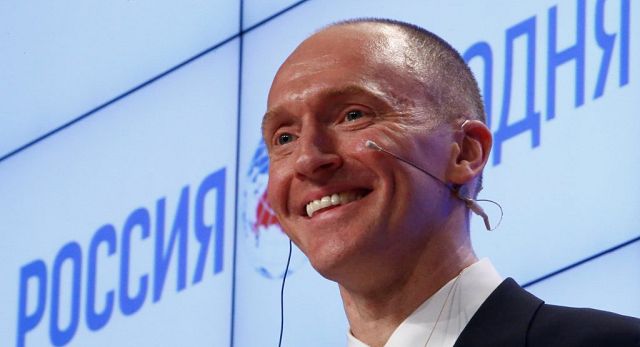
Carter Page
“I think he is an idiot”—so said one Russian spy to another of a 2013 effort to recruit Page as an intelligence asset, according to Mother Jones magazine. (“I didn’t want to be a spy,” Page has said. “I am not a spy.”) Some of the suspicion surrounding Page stems from the fact that no one who worked for the Trump campaign can quite explain how he ended up on the candidate’s list of foreign policy advisors.
In fact, Page was one of five people named by Donald Trump as his foreign policy advisors when he responded to a question in a March 2016 interview with the editors of the Washington Post. Despite this statement by Trump, members of his campaign staff claimed in September 2016 that Page had never briefed or even met Trump.
Page claimed he had never shaken Trump’s hand and that by saying he had met with Trump, he had meant meetings in the “Russian sense,” which he said meant he had attended rallies Trump spoke at.
Even more bizarre: In July 2016, invited by an academic institution in Moscow as a representative of the Trump campaign, Page gave a speech in which he sharply criticized the Obama administration’s policy toward Russia. His remarks drew notice at the FBI, kicking off the bureau’s ongoing investigation into Trump associates.
Page stopped advising the campaign sometime around the end of summer, though the exact circumstances of the separation are unclear.
In January 2017, Page’s name appeared repeatedly in the leaked Donald Trump-Russia dossier
containing contract intelligence from the former British intelligence operative Christopher Steele in the employ of a private American firm, which alleged a pattern of close interactions between the Trump campaign and the Kremlin, reporting which has continued to engender controversy.
Page recently gave a series of bizarre interviews in which he dodged questions but also seemed to implicate himself.
He acknowledged meeting with Russian ambassador Kislyak during the Republican convention and, after first denying that he had discussed the easing of sanctions with Russian officials, hedged on live TV: “Something may have come up in a conversation. I have no recollection.”
Page is no stranger to Russian affairs. In 2000 he began work as an investment banker with Merrill Lynch. He was vice president of the company’s Moscow office, and later served as COO for Merrill Lynch’s energy and power department in New York. Page has stated that he worked on transactions involving Gazprom and other leading Russian energy companies.
After leaving Merrill Lynch in New York in 2008, Page founded his own investment fund, Global Energy Capital. His partner in that venture is former mid-level Gazprom executive, Sergei Yatsenko.
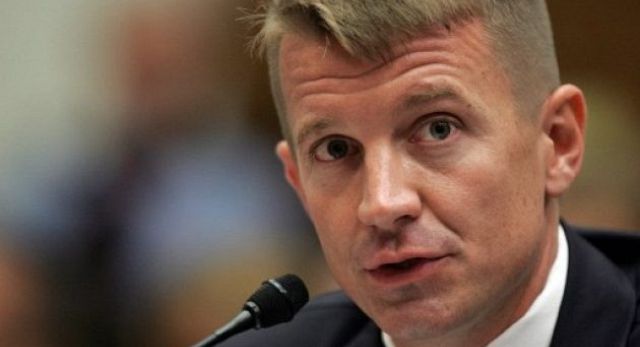
Erik Prince
In January, the founder of notorious private security contractor Blackwater—whose sister is Trump’s education secretary, Betsy DeVos—held a secret meeting in the Seychelles with a Russian close to Putin in an effort to establish an unofficial back channel between Moscow and Trump, according to the Washington Post. Prince also reportedly advised Trump aides, including Flynn, during the transition. (Prince denies both claims.)
Though the full agenda remains unclear, the United Arab Emirates agreed to broker the meeting in part to explore whether Russia could be persuaded to curtail its relationship with Iran, including in Syria, a Trump administration objective that would be likely to require major concessions to Moscow on US sanctions.
Prince once was part of a CIA task force created to kill terrorists. Allegedly, the Intelligence Committee of the House of Representatives leaked his name to the press. Prince has said that he is convinced that former CIA director Leon Panetta outed him as a CIA asset, after shutting down the covert CIA training operation in 2009.
Current and former US officials said that while Prince refrained from playing a direct role in the Trump transition, his name surfaced so frequently in internal discussions that he seemed to function as an outside adviser whose opinions were valued on a range of issues, including plans for overhauling the US intelligence community.

